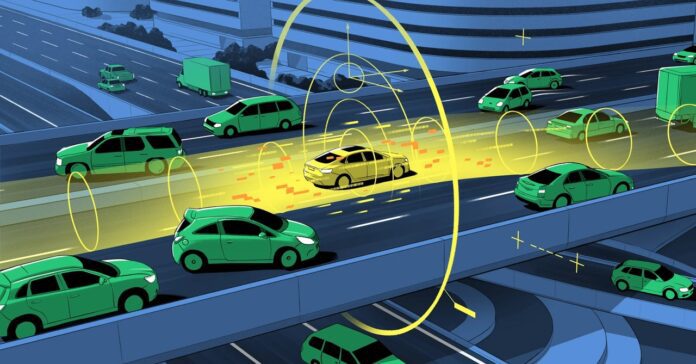The unique model of this tale seemed in Quanta Mag.
Driverless vehicles and planes are now not the stuff of the longer term. Within the town of San Francisco by myself, two taxi firms have jointly logged 8 million miles of independent using via August 2023. And greater than 850,000 independent aerial cars, or drones, are registered in america—no longer counting the ones owned through the army.
However there are respectable issues about protection. For instance, in a 10-month length that resulted in Would possibly 2022, the Nationwide Freeway Site visitors Protection Management reported just about 400 crashes involving cars the use of some type of independent keep watch over. Six folks died because of those injuries, and 5 have been critically injured.
The standard approach of addressing this factor—often referred to as “trying out through exhaustion”—comes to trying out those methods till you’re glad they’re protected. However you’ll be able to by no means ensure that this procedure will discover all attainable flaws. “Other people perform exams till they’ve exhausted their assets and endurance,” stated Sayan Mitra, a pc scientist on the College of Illinois, Urbana-Champaign. Trying out by myself, on the other hand, can’t supply promises.
Mitra and his colleagues can. His group has controlled to turn out the protection of lane-tracking features for vehicles and touchdown methods for independent plane. Their technique is now getting used to assist land drones on plane carriers, and Boeing plans to check it on an experimental plane this yr. “Their way of offering end-to-end protection promises is essential,” stated Corina Pasareanu, a analysis scientist at Carnegie Mellon College and NASA’s Ames Analysis Middle.
Their paintings comes to making certain the result of the machine-learning algorithms which are used to tell independent cars. At a top stage, many independent cars have two elements: a perceptual machine and a keep watch over machine. The belief machine tells you, as an example, how some distance your automotive is from the middle of the lane, or what course a airplane is heading in and what its perspective is with appreciate to the horizon. The machine operates through feeding uncooked information from cameras and different sensory gear to machine-learning algorithms in line with neural networks, which re-create the surroundings outdoor the automobile.
Those checks are then despatched to a separate machine, the keep watch over module, which comes to a decision what to do. If there’s an upcoming impediment, as an example, it comes to a decision whether or not to use the brakes or steer round it. In step with Luca Carlone, an affiliate professor on the Massachusetts Institute of Era, whilst the keep watch over module depends upon well-established generation, “it’s making selections in line with the belief effects, and there’s no ensure that the ones effects are proper.”
To supply a security ensure, Mitra’s group labored on making sure the reliability of the automobile’s belief machine. They first assumed that it’s imaginable to ensure protection when an ideal rendering of the outdoor international is to be had. They then decided how a lot error the belief machine introduces into its new version of the automobile’s atmosphere.
The important thing to this technique is to quantify the uncertainties concerned, referred to as the mistake band—or the “recognized unknowns,” as Mitra put it. That calculation comes from what he and his group name a belief contract. In instrument engineering, a freelance is a dedication that, for a given enter to a pc program, the output will fall inside a specified vary. Understanding this vary isn’t simple. How correct are the automobile’s sensors? How a lot fog, rain, or sun glare can a drone tolerate? But when you’ll be able to stay the automobile inside a specified vary of uncertainty, and if the resolution of that vary is satisfactorily correct, Mitra’s group proved that you’ll be able to be sure its protection.





 #shorts #shortsfeed #nature #youtubeshorts #iciness
#shorts #shortsfeed #nature #youtubeshorts #iciness